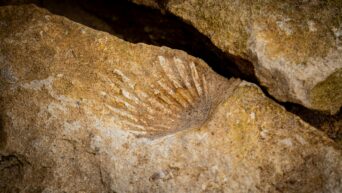A recent study proposes a fascinating connection between Earth’s magnetic field strength and the evolution of marine life. Researchers suggest that a weaker magnetic field between 590 million and 565 million years ago may have contributed to a surge in the size of marine animals and an increase in oxygen levels in the atmosphere and oceans.
Earth’s magnetic field, crucial for shielding life from cosmic radiation, fluctuates over long timescales due to processes in the planet’s interior. Recent findings indicate that during the specified timeframe, Earth’s magnetic field was significantly weaker than it is today, reaching its lowest recorded strength.
The study, published in Communications Earth & Environment, posits that this weakened magnetic field allowed more energetic cosmic particles to penetrate Earth’s atmosphere. Consequently, these particles could have broken apart water molecules, leading to the escape of hydrogen and the enrichment of oxygen in both the atmosphere and oceans.
This surge in oxygen levels, combined with the weakened magnetic field, may have provided the ideal conditions for the proliferation of macroscopic marine animals during the Ediacaran Period. The fossil record indicates a simultaneous increase in the size and mobility of marine life during this period, suggesting a potential link between oxygenation and the evolution of larger organisms.
While the study proposes several conceptual leaps, experts note the solid foundation of the research’s measurements. Geoscientist Joe Meert emphasizes the importance of such studies in fostering big ideas and expanding our understanding of Earth’s history and evolution.
This research underscores the complex interplay between Earth’s magnetic field, atmospheric composition, and the development of life, offering intriguing insights into the environmental factors that shaped our planet’s biological diversity.

































